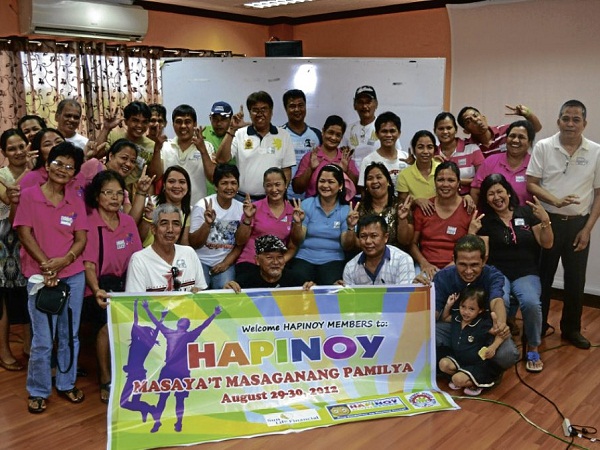Sari-sari store owners get lift from Sun Life, Hapinoy

SARI-SARI store owners learn how to better improve store operations through the seminars mounted by MicroVentures and financed through a grant from Sun Life.
The sari-sari, or variety, store is among the easiest businesses to get into, such that even the poorest of the poor manage to set up one even with just a few hundred pesos in capital.
But then the sari-sari store might as well be also called the “sara-sara” store because many of these neighborhood stores shut down just a few months after they are opened, and one of the main reasons behind the closure of these ventures is poor financial management.
According to Timothy John Agulto, executive director of MicroVentures Foundation, which manages the Hapinoy microenterprise development program that supports sari-sari stores in the Philippines, the failure to collect credit extended to customers is one of the most common missteps of microentrepreneurs.
Considering how small the profit margin is in sari-sari store operations, failure to collect the debt will have a profound impact as the sari-sari store owner will no longer have enough money to buy more goods to fill the store. Eventually, they crumble under the weight of uncollected credit.
Many sari-sari store owners also fail to develop the habit of listing down basic financial information they need to get a clearer picture of their sari-sari store’s costs, expenses and sales. Because of this oversight, they tend to spend more than they should. Their spending eats into their capital because they think that they are already earning so much. As for savings, it is practically nonexistent.
This vicious cycle of sari-sari stores opening and shutting down is what MicroVentures Foundation and Sun Life Philippines-Foundation want to end through such seminars such as the Sari-Saring Negosyong Training and Masaya’t Masaganang Pamilya and the Community Store Continuing Education Program.
The Sari-Saring Negosyong Training program aims to teach participants best practices in operating their own business, particularly in managing expenses and handling the day-to-day operations of the store. It also includes modules on how to create and organize inventory and the important basics of financial management.
“The challenge for the entrepreneurial poor is not in setting up the sari-sari stores, but rather in keeping them open,” says Agulto. “Through this seminar, we teach the sari-store owners such basics as listing everything down, and noting how much they earned and sold.”
MicroVentures has rolled out the SNTP in Sorsogon, Bulacan and Pandacan in Manila for the small entrepreneurs belonging to the Hapinoy program. Some 500 sari-sari store owners earning about P500 a day have benefited from the training. One of the main lessons the participants learned was how to systematize and organize their stores.
The Masaya’t Masaganang Pamilya seminar, on the other hand, is meant to fill the need to further hone the entrepreneurial skills of the sari-sari store owners, and at the same time, strengthen relationships with their children and especially their spouses, who are usually their partners in running the sari-sari store.
The Community Store Continuing Education Program, meanwhile, is a more intensive program lasting six to 12 months. It is designed to help the more experienced sari-sari store owners level up their operations by becoming more efficient and carrying more than just basic items.
According to Agulto, the first stage of the continuing education program involves improving the efficiency of sari-sari store operations, followed by product diversification so that the owners can sell products such as phone credits, bread, generic medicine and solar lamps that have a higher profit margin.
Sun Life Financial-Philippines Foundation executive director Veron Estrella says the foundation supports the MicroVentures seminars because they contribute to the general thrust of Sun Life to promote financial management in the Philippines.
“We see the partnership as a perfect fit, as it is about embracing the principles of financial management that are also being espoused by our own ‘It’s Time’ financial literacy advocacy,” explains Estrella. “If you see the salient points of the project, each one resonates. Hapinoy or MicroVentures is about empowering challenged families to generate savings.”
Estrella says that Sun Life and MicroVentures started discussing the partnership last year, but was only formalized in March this year. The agreement calls for the provision of a grant from Sun Life to finance the formulation of the training modules and the rollout of the seminars over the next two years.
This way, both Sun Life and MicroVentures hope to increase the ranks of entrepreneurs among the poor.
